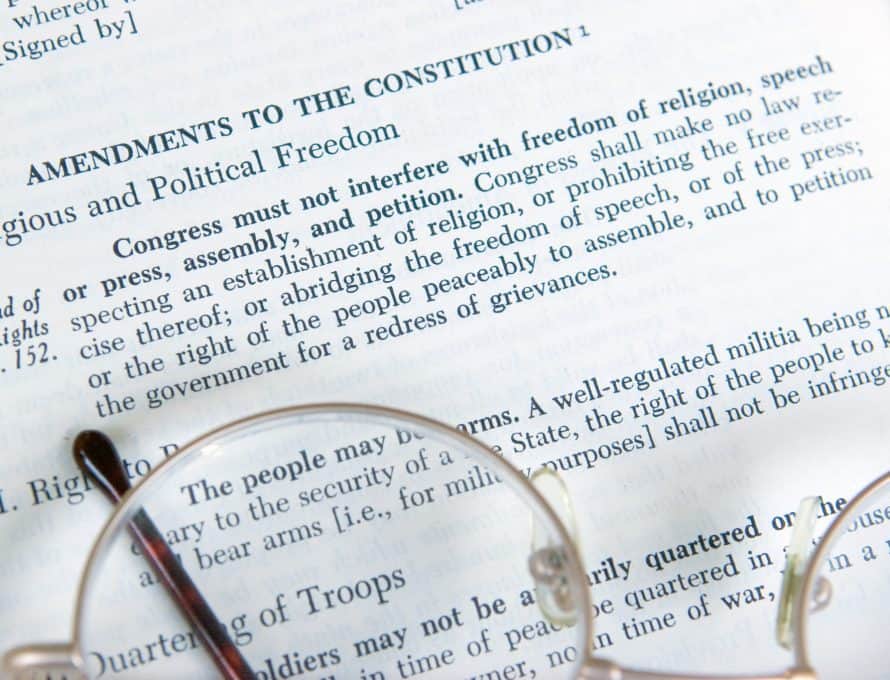(WNS) – The headquarters of the U.S. Commission on Civil Rights (USCCR) is a mile and a half, or a brisk 20-minute walk, west of the U.S. Supreme Court building in Washington, D.C. Despite its geographic proximity, the release last week of a report calling for a federal LGBT nondiscrimination law indicates the commissioners are far removed from what was heard at the high court Tuesday.
Gay rights activists and their supporters in Congress have for decades sought passage of a federal nondiscrimination statute akin to the 1964 Civil Rights Act. The USCCR, an independent group charged with investigating civil rights issues, added its substantial voice to the debate, urging Congress in a 6-2 vote to pass legislation drawn from its report. But critics, including commissioners Gail Heriot and Peter Kirsanow, said the commission’s investigation did little more than call pro-LGBT witnesses to validate a prescribed remedy to a perceived problem.
During a phone-in news conference introducing the report on Wednesday, USCCR Chairwoman Catherine Lhamon praised the commission’s investigation of LGBT workplace discrimination and lamented it had taken 60 years for the USCCR to advance the cause of civil rights for LGBT Americans. Brian Walch, a commission spokesman, refused to answer questions about the timing of the report’s release, six days before the U.S. Supreme Court heard arguments in Masterpiece Cakeshop v. Colorado Civil Rights Commission.
Prior to the commission’s investigation, Heriot said she had no “fixed view” on the issue and looked forward to balanced testimony that would give her clarity. But of the 17 panelists who testified before the commission, only two posited concerns about a federal sexual orientation and gender identity (SOGI) law. One of those witnesses, Ryan Anderson of the Heritage Foundation, was secured “at the very last minute, only after Commissioner Kirsanow and I complained vociferously about panel imbalance,” Heriot said in her dissenting statement.
The report gives “short shrift” to concerns about conflicts that arise with the establishment of sexual orientation and gender identity as protected classes, Anderson told me. Instead, he said, “[It] plays fast and loose with relevant data—citing activist organizations as impartial sources, and reporting data on ‘perceptions’ of discrimination as if reporting actual discrimination.”
The immutability of a distinguishing characteristic—race, sex, disability—serves as a philosophical underpinning of existing civil rights legislation. But those who describe themselves as homosexual or transgendered do not meet that standard because, by their own admission, sexual identity is fluid, said Theresa Sidebotham, an attorney for a Colorado law firm that serves religious ministries, individuals, and businesses.
Despite the fact that it would not meet an immutability standard and would conflict with religious and free speech liberties, Sidebotham believes the extreme cultural shift on gender issues makes the passage of a federal LGBT civil rights law unavoidable. But a law drafted from the USCCR report, or the latest iteration of the Employment Nondiscrimination Act now languishing in Congress, would be devastating: Neither proposal has any religious liberty protections. Activists call protections such as those contained in the federal Religious Freedom and Restoration Act (RFRA) a “license to discriminate.”
First Amendment advocates should press for a federal sexual orientation and gender identity law containing religious exemptions while they still have a chance, Sidebotham said.
“If a federal SOGI statute takes RFRA out of the picture, there will effectively be no First Amendment protection for religious speech, depending in part on how Masterpiece plays out,” she warned.

